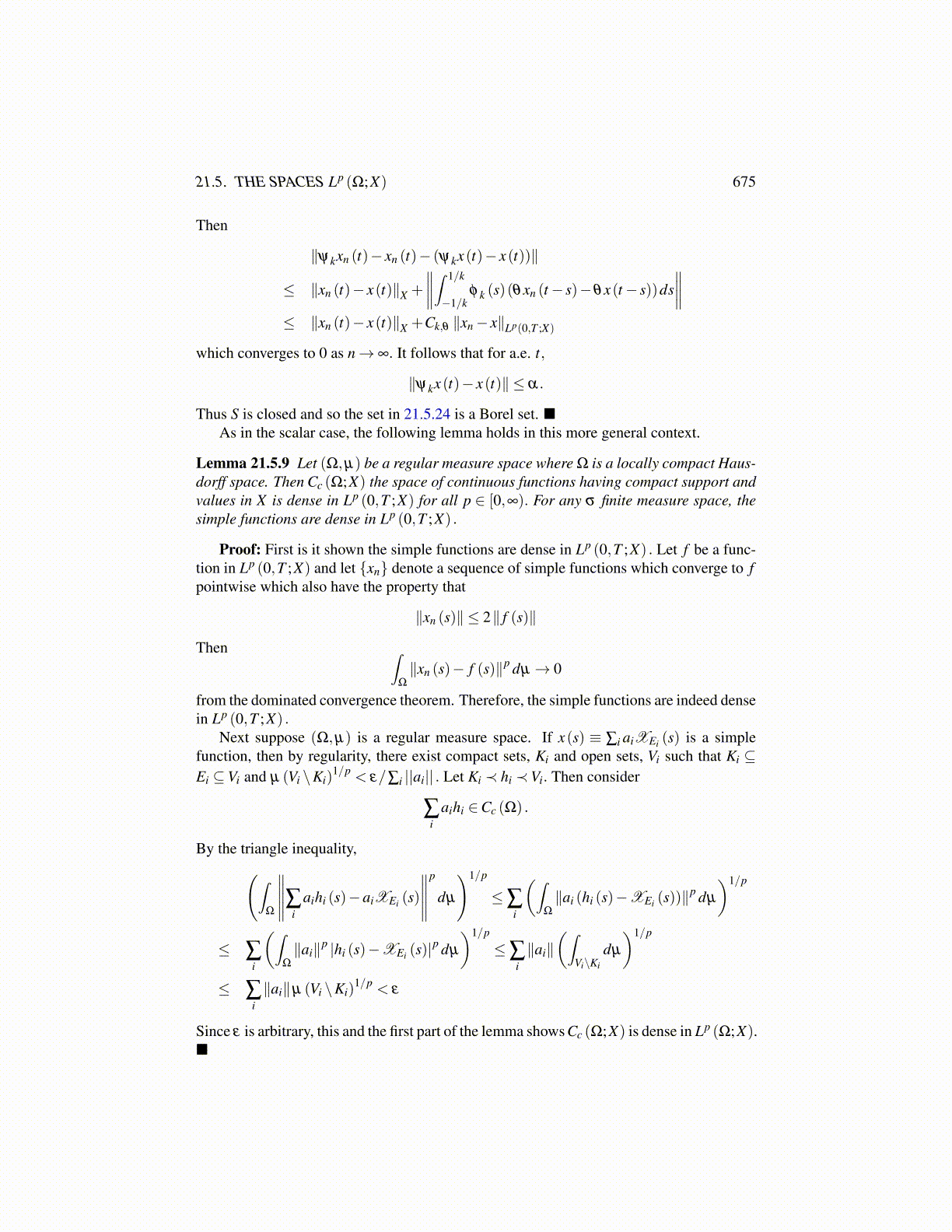
21.5. THE SPACES Lp (Ω;X) 675
Then
∥ψkxn (t)− xn (t)− (ψkx(t)− x(t))∥
≤ ∥xn (t)− x(t)∥X +
∥∥∥∥∫ 1/k
−1/kφ k (s)(θxn (t− s)−θx(t− s))ds
∥∥∥∥≤ ∥xn (t)− x(t)∥X +Ck,θ ∥xn− x∥Lp(0,T ;X)
which converges to 0 as n→ ∞. It follows that for a.e. t,
∥ψkx(t)− x(t)∥ ≤ α.
Thus S is closed and so the set in 21.5.24 is a Borel set.As in the scalar case, the following lemma holds in this more general context.
Lemma 21.5.9 Let (Ω,µ) be a regular measure space where Ω is a locally compact Haus-dorff space. Then Cc (Ω;X) the space of continuous functions having compact support andvalues in X is dense in Lp (0,T ;X) for all p ∈ [0,∞). For any σ finite measure space, thesimple functions are dense in Lp (0,T ;X) .
Proof: First is it shown the simple functions are dense in Lp (0,T ;X) . Let f be a func-tion in Lp (0,T ;X) and let {xn} denote a sequence of simple functions which converge to fpointwise which also have the property that
∥xn (s)∥ ≤ 2∥ f (s)∥
Then ∫Ω
∥xn (s)− f (s)∥p dµ → 0
from the dominated convergence theorem. Therefore, the simple functions are indeed densein Lp (0,T ;X) .
Next suppose (Ω,µ) is a regular measure space. If x(s) ≡ ∑i aiXEi (s) is a simplefunction, then by regularity, there exist compact sets, Ki and open sets, Vi such that Ki ⊆Ei ⊆Vi and µ (Vi \Ki)
1/p < ε/∑i ||ai|| . Let Ki ≺ hi ≺Vi. Then consider
∑i
aihi ∈Cc (Ω) .
By the triangle inequality,(∫Ω
∥∥∥∥∥∑iaihi (s)−aiXEi (s)
∥∥∥∥∥p
dµ
)1/p
≤∑i
(∫Ω
∥ai (hi (s)−XEi (s))∥p dµ
)1/p
≤ ∑i
(∫Ω
∥ai∥p |hi (s)−XEi (s)|p dµ
)1/p
≤∑i∥ai∥
(∫Vi\Ki
dµ
)1/p
≤ ∑i∥ai∥µ (Vi \Ki)
1/p < ε
Since ε is arbitrary, this and the first part of the lemma shows Cc (Ω;X) is dense in Lp (Ω;X).